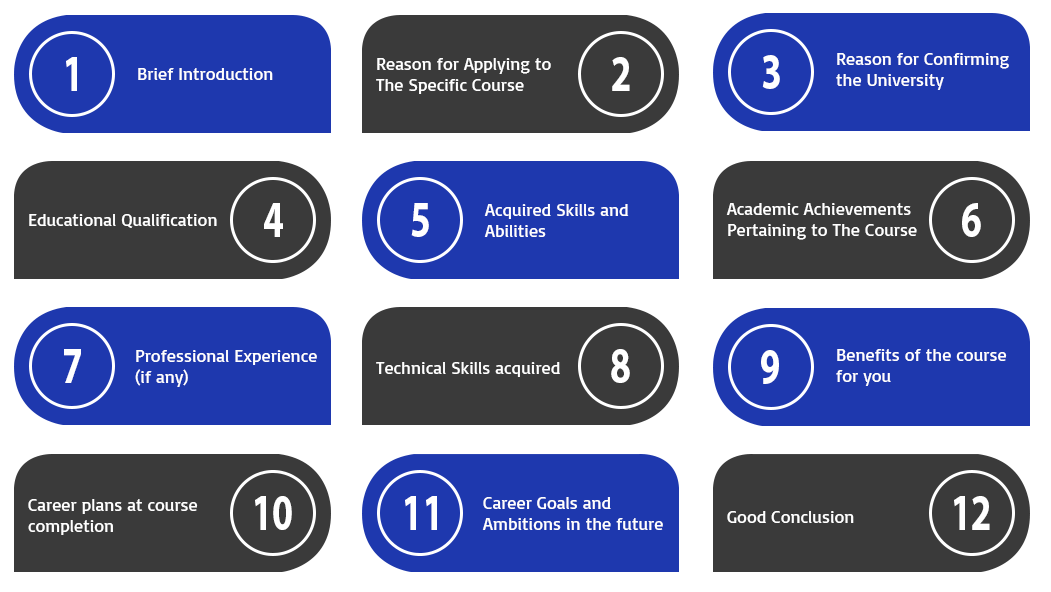
Personal statement is an essential document to submit at the time of applying for higher education. Both personal statement and statement of purpose are quite identical in nature. However, the former is a more crisper and straight-to-the-point than the latter. It focuses on a few specific areas such as achievements, inspiration and goals. As you write a personal statement, keeping in mind the following facts about it will help you make it more convincing and impressive.
Personal statement when well written is in fact a picture that portrays you as an individual on a personal level, a candidate driven for higher education and an student eligible to receive scholarship.
It is a document that bridges the gap between you and the college selection committee. They hardly know anything about you and through your personal statement you get a chance to explain who you are.
It is your personal story that you want to tell the selection panel, to let them know how different you are from other applicants. Best way to write a personal statement is to make sure it doesn’t recreate your CV.
When writing a personal statement for higher education, it is important to know what the admission committee will want to see in it. In other words, you should know what to include in a personal statement.
You are expected to provide a lot of important information in it. But you cannot exceed a certain word limit. Therefore, it is necessary to be choosy about the points and giving attention only to the most relevant. Make sure to abide by a convincing personal statement format. Here is a checklist of information you need to emphasize on in your personal statement.

how you came to be interested in the particular field with a touch upon your background.
write about the long term and short team professional and academic goals.
What different factors motivated you choose this particular program at this particular institute.
Besides how you are going to be benefit from the institute and the program, write about how your presence there will benefit the institute.
When you talk about how successful you will be, it will look more convincing when you support it with your passion and detailing how successful you were during your previous endeavours.
Personal statement is a crucial document in a college or university application. If it has to be read well by the selection committee, you must know the best way to write a personal statement. Apart from the tone of writing and the quality of language used in it, it is also important to note that structuring a personal statement is the footing of all.
Personal statement should have an introduction, main body and the conclusion.

For writing an effective personal statement, an intriguing introduction is essential. The introduction should say what is entailing in the overall essay.
The main body is the extension of the introduction and when you write your own personal statement, you must focus on explaining how prepared you are for doing the course.
The conclusion should reiterate what is said in the introduction and in the main body. It should contain what you want the reader to take away from your writing a great personal statement.

Besides knowing the best way to write personal statement, one must know how to proofread and edit and make it presentable for a college or university admission.
We have experienced writers and study abroad education counsellors who possess authentic knowledge about the best way to write a personal statement.
The overall appeal of a personal statement lies in how you make it, what information you include in it and in what order you do it. For piecing together all different points, a proper structure should be followed. Here is how you can structure it altogether.


Organizing the personal statement in the correct order is important to grab the attention of the selection committee.
First of all, the personal statement should begin with a brief Introduction that explains the purpose of the document followed by detailing your reasons for applying to the specific course and what ignited your interest in the subject.
Next, the document should talk about the reasons for selecting the particular university. This must be followed by writing about education qualification, skills, abilities, academic achievements, etc.
The ensuing paragraph should be dedicated to talk about your professional experiences and skills, and the technical aptitudes you acquired from your work.
In the upcoming paragraph, you must write about the benefits that you will gain from the study of this course and plans and goals about your future and career.
Finally, your personal statement should have a convincing conclusion. It should provide the admission panel with what to take away from your essay.

There are many ways to structure a personal statement. The expert writers with us decide the structure based on candidates’ profile.
Keep the content of your personal statement simple and intriguing. The admission authorities are presented with thousands of personal statements and if your personal statement is too complicated to read and uninteresting, it will not gain attention.
Personal statement is a document where you should pack a lot of information without making it too long. It is not the word count that matters but how effective each word reflects your thoughts that matter.
Avoid all exaggerated or false content in your Personal Statement. You may be eager to win over the admission committee with false and exaggerated facts. But avoid it. Instead, present only correct information.
Do not copy content from online sources or from other Personal Statements. Instead, present an original and unique Personal Statement using your details, experience and information. Distinguish yourself from the other candidates with good presentation and inclusion of original ideas.
With plenty of creativity implemented in your personal statements, you will be able to draft a qualifying document that stands out above the rest. You can insert interesting story to add value to your personal statements.
Any real-life experiences that motivated you to undergo the course
Influence or encouraging instances from family, friends or teachers
Lessons you gained from your extra-curricular or social work experiences
Your personal motto or moral that helps you to envisage a better future
Institutions may give prescribed word count or general format is to write within 500-1000 words. Initially, make a rough draft without considering this and go with the flow of your ideas. Later on, improvise wherever required while keeping the word count.
Start drafting your personal statement as soon as you have decided to opt for a course in a particular university – which gives you plenty of time to rewrite, proofread and edit your document.
Personal statement is an official document and hence you have to be very careful about using words and expressions. While applying to foreign country schools, language skills have definitely some hefty weight.
Confidently present your relevant qualities you think can help you get a positive response from the officers. Hide your negative strengths or sugar coat them to your benefit. Be like a salesman who tries to convince his customer.
Any writing tactic can be used to begin the personal statement. Even if you had drafted the whole story in a day and can’t find an impressive beginning statement, don’t hesitate to spend more days working on that.
Refer for samples of personal statements available on internet. But don’t imitate the tone and voice of any such examples. They have written about themselves, and you are writing about yourself; this itself is a core difference.
Even if you have excellent skillset and qualifications, the admission officers have years of expertise than you. Don’t make them feel you are bragging too much and are over confident.
Get your final document checked by any qualified person who can review and give you genuine feedback. They might even come up with some interesting personal statement tips of their own. Be open to criticisms and corrections.
Check yourself, whether the final record showcases the real you and is error-free and logically linked. Some people have been benefitted by reading the essay loud for many times. Adopt your method.
Personal statement is your ultimate chance to impress the selection committee of the college you are going to study in. So, craft it free from errors. Here are the common Do’s and Don’ts to keep in mind while preparing your writeup.


We have years of experience writing winning Personal statements. You may reach us right now!
A personal statement is a document that provides information about an individual’s personal background, experiences, and goals, typically submitted as part of a job or school application.
Some common mistakes to avoid when writing a personal statement include using clichés or generic statements, being too informal or overly formal, focusing too much on personal achievements rather than experiences or values, and failing to proofread for errors.
The length of a personal statement can vary depending on the requirements of the specific application or job, but it is generally recommended to keep it between 500-1000 words.
Some tips for writing a strong personal statement include starting with a compelling opening, highlighting your relevant skills and experiences, being specific and avoiding vague language, showcasing your unique perspective, and proofreading thoroughly for errors.
The tone of your personal statement should be professional, but also reflective of your personal voice and experiences. Avoid being too formal or stiff, but also avoid being too casual or using slang.
It is generally not recommended to use the same personal statement for multiple applications, as each application may have different requirements and expectations. Instead, tailor your personal statement to each specific application to showcase your fit for that particular opportunity.

© Copyright 2025 SOP Consultants | Designed by 3CBrandHub

© Copyright 2024 SOP Consultants | Designed by 3CBrandHub